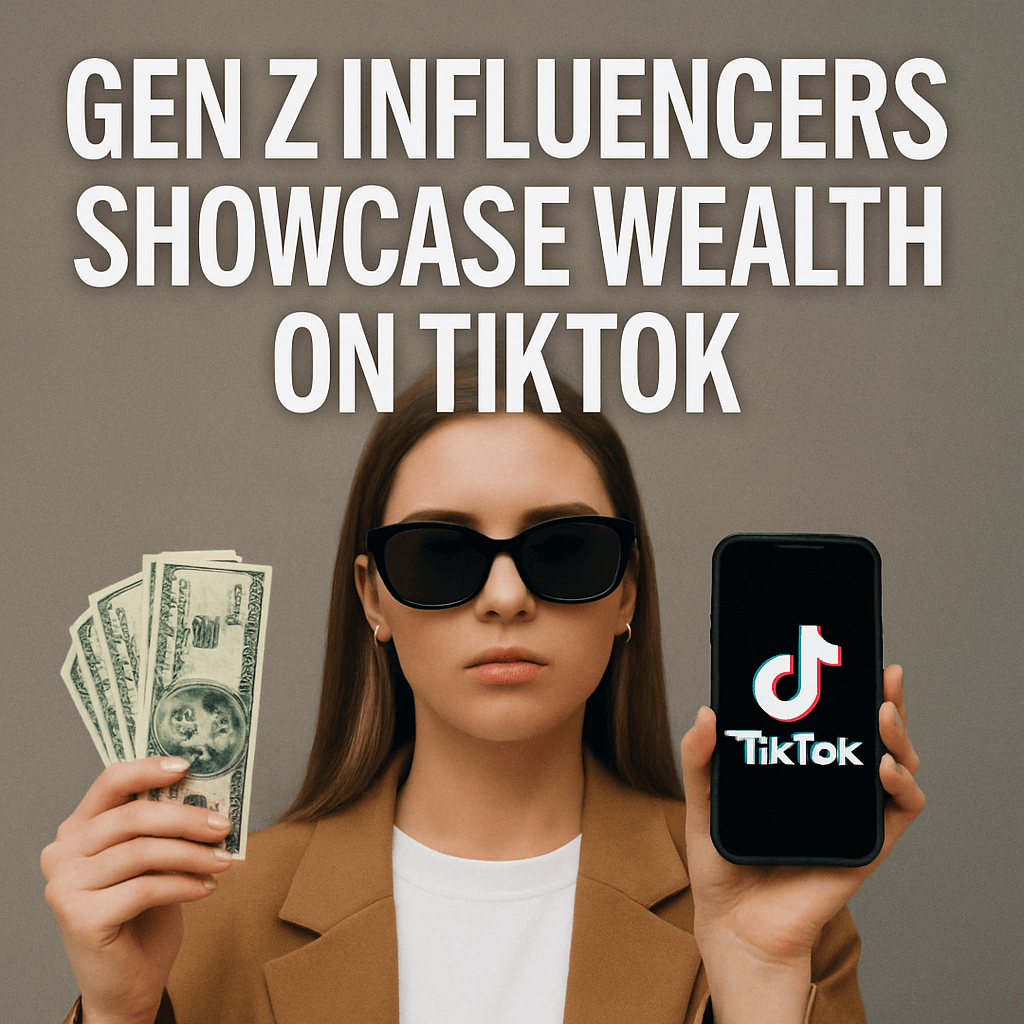Gen Z Influencers Showcase Wealth on TikTok

In an era when billionaires are becoming increasingly ostentatious, their children—often referred to as ‘nepo babies‘—are joining the fray. This shift in generational wealth acknowledgment has culminated in a TikTok trend aptly dubbed “Holy Airball.” This phenomenon highlights how Gen Z is taking to social media platforms to flaunt their heritage and elaborate on what their affluent families are known for, stretching from Hollywood stars to corporate moguls.
Understanding the ‘Holy Airball’ Trend
The latest TikTok videos adhering to this trend generally follow a defined structure. A user will present a statement about themselves, followed by a common misconception about their background, and then a series of follow-up slides that unveil a more impressive truth about their family’s achievements. The term “holy airball” itself, borrowed from basketball, implies a bold yet misguided shot that misses its target.
For instance, Ava, the 25-year-old daughter of actress Reese Witherspoon, posted a video detailing her illustrious family connection, highlighting the film that catapulted her mother into stardom. In one slide, she reveals, “I told him my mum’s a lawyer, and he said, ‘Oh what firm does she work at?’” She follows this with a behind-the-scenes snapshot from the set of Legally Blonde, where Witherspoon’s character famously navigates legal challenges, captioning it with a playful, “Holy-fricking airball.” This video has since amassed over 2 million views.
Celebrity Offspring and Corporate Heirs on TikTok
The trend extends beyond Hollywood elites; children of various successful executives are joining the chorus. Notable examples include offspring of prominent figures from diverse backgrounds, such as the heirs of Airbnb founders, the creator’s daughter from the former reality TV show My Super Sweet 16, and even children connected to renowned companies like Zildjian, an esteemed drumstick manufacturer.
- Ava Witherspoon – Daughter of Reese Witherspoon
- Investors’ children from Airbnb and Zildjian
- Various TikTok users claiming lineage to companies like Buc-ee’s and Folgers, though veracity is often questionable.
However, it is crucial to observe that while many TikTok accounts leverage their famous surnames to build a following, some claims lack credibility. For instance, users like Greyson and Gracie Abercrombie purport connections to Abercrombie & Fitch, yet the company was sold in 1907, long before their existence. Furthermore, Abigail McDonald has jokingly asserted her family line is associated with McDonald’s, adding layers of confusion regarding identity and legacy.
The Generational Wealth Gap: Expectations vs. Reality
While these TikTok accounts paint an alluring image of inherited wealth, the reality for Gen Z may be more complex. Despite expectations of a staggering $84 trillion wealth transfer from baby boomers to younger generations over the coming decades, the grim trend is that more affluent retirees are choosing to spend their wealth rather than leave it as inheritance. Research from financial services firm Northwestern Mutual contemplates this paradigm, revealing that around 60% of affluent seniors have established wills. Yet, for many children and grandchildren, these documents often contain only funeral arrangements rather than tangible assets.
In fact, over half of baby boomers express intentions not to leave any legacy behind, correlating with a movement among today’s wealthy to “die with zero”—a philosophy favoring the enjoyment of wealth while living over bequeathing material wealth. Esteemed public figures such as musician Sting and celebrity chef Gordon Ramsay have openly voiced intentions to spend their fortunes, further exemplifying this shift in mindset.
The Implications of Wealth Visibility on Generational Expectations
This TikTok phenomenon garners scrutiny concerning societal implications, as young individuals may equate public displays of wealth with private fortunes and unwarranted expectations of inheritance. Furthermore, these representations may incite feelings of inadequacy among Gen Z individuals, especially as they grapple with financial barriers like soaring housing prices and student debt.
- The ‘holy airball’ phenomenon reflects a nuanced approach to wealth and status, highlighting shifts in societal values.
- Eye-catching TikTok trends could inadvertently present warped perceptions of economic realities.
- As technology enables such self-promoting displays, careful attention to authenticity remains paramount.
Conclusion
As Gen Z navigates the complexities of their financial futures, the trend of flaunting inherited wealth via social media platforms serves as both an expression of pride and a stark reminder of the evolving dynamics of wealth transfer. While the allure of fame and fortune has been vividly captured in TikTok’s ‘Holy Airball’ trend, it’s essential to recognize the stark realities surrounding generational wealth, inheritance expectations, and the decisions that shape financial legacies.
Did your workplace make our list of the 100 Best Companies to Work For? Explore this year’s list.